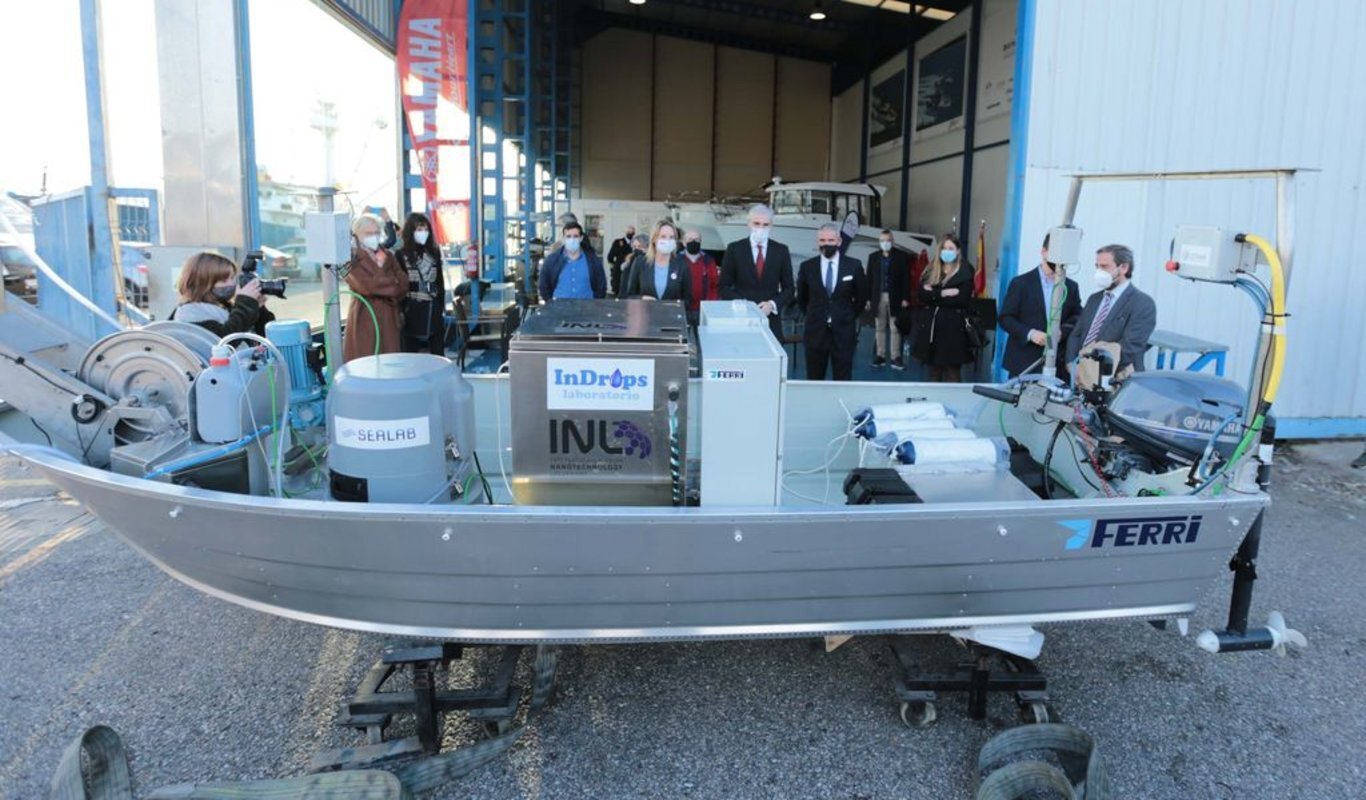Marine drone carrying INL technology monitors water quality in Vigo
November 24, 2020
Photo credits: Atlantico.net
A portable lab with nanosensors developed by INL – International Iberian Nanotechnology Laboratory inside an unmanned boat was launched to the waters of the Vigo estuary, in Galicia, northern Spain, on the 23rd of November, 2020, to monitor the water quality in a sensitive area due to the economic activities linked to aquaculture.
Raquel Queirós, INL researcher involved in this initiative, adds that “under the framework of SEALAB project, the developed marine drone was launched to the waters of Marina Davila’s in Vigo as a milestone for the start of field experiments. The boat has a portable laboratory on board, which will allow the monitorization of physical-chemical parameters of seawaters without human intervention”.
INL technology is key to this project
Two years ago, the company INDROPS, a highly innovative micro-SME, became interested in the INL nanosensors (Water Quality research group) for the detection of pollutants in the sea. The priority substances, classified by the European Union in directive 2013/39 / EU, pose a relevant risk to the environment and human health and are quite difficult to detect. To solve this complex challenge, the SEALAB project, funded by Xunta de Galicia (GAIN), has developed a portable laboratory with an innovative system for water samples collection and management, which incorporates INL nanosensors to detect four priority substances (Atrazine, Diuron, Terbutrín and Benzo(a)pyrene), in addition to measuring other water quality parameters like oxygen, temperature, conductivity or turbidity.
The SME INDROPS is the coordinator of a consortium that involves two companies (Industrias Ferri, Imatia Innovation), the INL and CETMAR, to develop the first portable laboratory for seawater quality control, incorporated into an unmanned marine vehicle. The project will generate relevant and long term benefits both in the environment and in public health, but also economic benefits and sustainable employment in the participating entities, thanks to the exploitation of the results of this R&D project, the provision of new advanced services for priority substances detection and the fabrication and commercialization of this pioneering “lab-on-a-ship”, a marine drone that incorporates on board a portable laboratory equipped with automated sampling for subsequent analysis.


